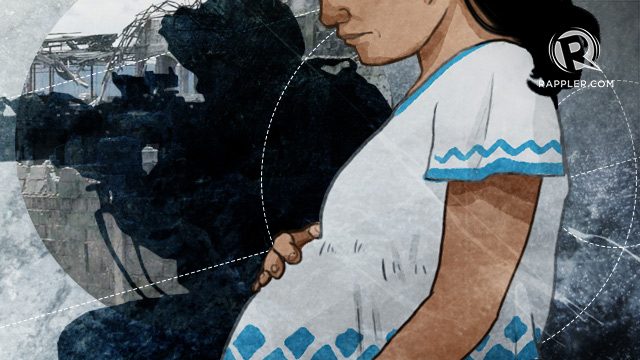SUMMARY
This is AI generated summarization, which may have errors. For context, always refer to the full article.
![[OPINION | Dash of SAS] A soldier’s wife doesn’t cry](https://www.rappler.com/tachyon/r3-assets/612F469A6EA84F6BAE882D2B94A4B421/img/19CD788CB97C4C969842A9997EC795C7/to-be-a-soldiers-wife-is-to-follow-a-code.jpg)

To be a soldier’s wife is to follow a code. Don’t cry if your husband is wounded. Be strong for him. Be brave for your children. Hide your pain. Mask your fear.
“The older wives whose husbands were wounded before advised us that no matter what, we should not let our husbands see us cry,’’ said Nehcil, whose husband has been in the service for 10 years.
Seeing you cry will make him feel sorry for himself. It will make him lose hope. It will weaken his resolve to get well.
It was October 18 when Nehcil, 27, woke up to Facebook messages from the other wives in her husband’s squad. The men had been attacked and 13 were wounded, 3 critically. One of them was her 31-year-old husband, Paul Vincent, squad leader of Charlie Company.
The day before, President Rodrigo Duterte was in Marawi City and had declared the city “liberated”.
Terrorist leaders Isnilon Hapilon and Omar Maute were dead and for the first time since May 23 it seemed that the end of the war was near. The siege that displaced more than 300,000 people, killed more than 200 people including 47 civilians, and left thousands wounded had dragged on for 5 months. Finally, it was going to come to an end.
Colonel Romeo Brawner, deputy commander of Joint Task Force Ranao based in Marawi City said that clearing operations would continue to find the last remaining 30 fighters and free the estimated 18 civilians they held hostage.
“Now that we have neutralized the two leaders, we expect the whole Maute-IS group to be neutralized,” said Brawner.
The men of the Charlie Company heaved a sigh of relief as they were about to turn in that evening. Many had been on the battlefield for 5 months straight and were eager to go home.
The same night, a group of enemy fighters pounced just as they had just settled in to sleep in one of the bullet-riddled buildings that served as outpost and sleeping area.
In the dark and in the chaos, the soldiers could not see exactly how many fighters there were. The men were taken in a vulnerable position and scrambled to get a stronghold on the enemy while fighting to protect those who had been wounded.
The men described the fighters as being on a rampage, firing indiscriminately.
“It was as if they were on a last ditch suicide mission,” said sergeant Marty, 37. “We couldn’t see anything because it was dark. All we heard were the bullets and some of them shouting: “You will all die. We will finish you all!”.
It was Marty’s second time to be wounded. The first time shrapnel scraped his hands and arms. This time he took a bullet in his left thigh.
Lying on the bed next to Sergeant Marty was Private First Class John. His right foot was bandaged and elevated; a bullet had gone through the sole of his foot, smashing bone and tearing flesh. They were still lucky, said John. No one died from the attack, but there were those critically wounded.

Worried
Pregnant with her third child, Nehcil felt her knees crumple when she received the news that her husband Paul Vincent had been wounded. Chills swept over her body and her mother wrapped her in a blanket to warm her and control her shivering.
Nehcil refused to answer the ringing of her phone. If they were calling to bring her more bad news, she did not want to hear it. She only read SMS messages to limit unnecessary conversation.
When she finally got to speak to Paul Vincent, he downplayed his injuries and said that one bullet had just grazed his belly and another his side. There was no need to come to the hospital.
Nehcil didn’t believe him. Especially since she received a message from Carmina. Her husband, Claudio, was also critically wounded and was in the intensive care unit.
Typhoon Paolo had just begun to barrel through the Philippines when Nehcil and Carmina got on a boat and travelled more than a day to get from their village in Samar to the Sanitarium Hospital in Iligan where their husbands were being cared for.
“The waves were so big because of the typhoon. I kept vomiting from sea sickness. I prayed that nothing would happen to us while we made our way to our husbands,” said Nehcil.
During their journey, Nehcil kept in close contact with Ate Jane.
Ate Jane was one of the women in the wives’ chat group. She was the former spouse of one of the soldiers and had gotten to know the other wives when she lived in Samar with her then husband. Since they separated, she moved back to Iligan, but maintained close friendships with the wives.
It was their Ate Jane who took control of the situation until the wives arrived, visiting the hospital, taking notes from doctors, and diligently reported back to the women.
“We don’t know what we would have done without Ate Jane. We don’t know anyone here in Iligan,” said Nehcil.
Paul Vincent was surprised to wake up from surgery and find Nehcil at his side. The bullets had more than just grazed his stomach and side, as Nehcil had earlier feared, but he was going to recover.
The first thing Paul Vincent asked her was how their two small children were doing.
Then they both allowed themselves to cry. – Rappler.com
Add a comment
How does this make you feel?
There are no comments yet. Add your comment to start the conversation.